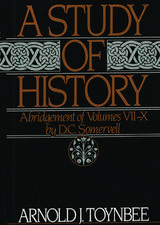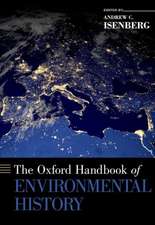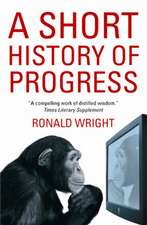Transcending the Cold War: Summits, Statecraft, and the Dissolution of Bipolarity in Europe, 1970–1990
Editat de Kristina Spohr, David Reynoldsen Limba Engleză Hardback – sep 2016
Preț: 401.79 lei
Preț vechi: 553.53 lei
-27% Nou
Puncte Express: 603
Preț estimativ în valută:
76.89€ • 79.98$ • 63.48£
76.89€ • 79.98$ • 63.48£
Carte tipărită la comandă
Livrare economică 04-10 aprilie
Preluare comenzi: 021 569.72.76
Specificații
ISBN-13: 9780198727507
ISBN-10: 019872750X
Pagini: 290
Ilustrații: 14 black and white figures/illustrations
Dimensiuni: 163 x 234 x 21 mm
Greutate: 0.54 kg
Editura: OUP OXFORD
Colecția OUP Oxford
Locul publicării:Oxford, United Kingdom
ISBN-10: 019872750X
Pagini: 290
Ilustrații: 14 black and white figures/illustrations
Dimensiuni: 163 x 234 x 21 mm
Greutate: 0.54 kg
Editura: OUP OXFORD
Colecția OUP Oxford
Locul publicării:Oxford, United Kingdom
Recenzii
Transcending the Cold War offers a real contribution to Cold War historiography. At a time when end of the Cold War scholarship is enjoying a renaissance, the volume pushes other scholars to more directly consider the interactions among senior leaders.
[O]ffers [an] interesting [view] of the evolution and peaceful end of the Cold War.
High-level summit meetings were a staple feature of international politics throughout the 20th century, but at no time were they more frequent or meaningful than in the final two decades of the Cold War. Two distinguished historians, Kristina Spohr and David Reynolds, have compiled an excellent set of essays about the summits from 1970 to 1990 that both reflected and helped to bring about far-reaching changes in the international system. The contributions of the editors themselves and of other leading experts give readers a superb account of the way summits evolved and the impact they had during these momentous two decades.
Kristina Spohr and David Reynolds have boldly undertaken one of the most difficult tasks facing international historians -- how to situate leaders within the great forces that shape the world and at the same time gauge how much difference those individuals make. In an elegantly written book which calls on a mass of evidence, they argue persuasively that the summits between key figures such as Khrushchev, Kennedy, Gorbachev or George Bush the elder really mattered. Engaging in face to face negotiations with friends and foes did much to prevent the Cold War from becoming a hot one and, at the end, enabled it to wind down peacefully. Transcending the Cold War is a model of diplomatic history which today's leaders could read with profit.
This is a lucid and compelling account of some of the most important summit meetings of the Cold War. It manages to combine a lively narrative and a wonderful compendium of crucial sources, to address the deeper question of how far individual leaders can be responsible for shaping the course of events, and how far they are shaped by them.
These detailed analyses, based on extensive archival work, add significant depth to the understanding of international relations and diplomacy ... Highly recommended.
cleverly composed ... it is a commentary on the political blind flight of our days. Or a contemporary appeal.
[O]ffers [an] interesting [view] of the evolution and peaceful end of the Cold War.
High-level summit meetings were a staple feature of international politics throughout the 20th century, but at no time were they more frequent or meaningful than in the final two decades of the Cold War. Two distinguished historians, Kristina Spohr and David Reynolds, have compiled an excellent set of essays about the summits from 1970 to 1990 that both reflected and helped to bring about far-reaching changes in the international system. The contributions of the editors themselves and of other leading experts give readers a superb account of the way summits evolved and the impact they had during these momentous two decades.
Kristina Spohr and David Reynolds have boldly undertaken one of the most difficult tasks facing international historians -- how to situate leaders within the great forces that shape the world and at the same time gauge how much difference those individuals make. In an elegantly written book which calls on a mass of evidence, they argue persuasively that the summits between key figures such as Khrushchev, Kennedy, Gorbachev or George Bush the elder really mattered. Engaging in face to face negotiations with friends and foes did much to prevent the Cold War from becoming a hot one and, at the end, enabled it to wind down peacefully. Transcending the Cold War is a model of diplomatic history which today's leaders could read with profit.
This is a lucid and compelling account of some of the most important summit meetings of the Cold War. It manages to combine a lively narrative and a wonderful compendium of crucial sources, to address the deeper question of how far individual leaders can be responsible for shaping the course of events, and how far they are shaped by them.
These detailed analyses, based on extensive archival work, add significant depth to the understanding of international relations and diplomacy ... Highly recommended.
cleverly composed ... it is a commentary on the political blind flight of our days. Or a contemporary appeal.
Notă biografică
Kristina Spohr is associate professor of International History at the LSE. German-Finnish by birth, she studied at the University of East Anglia, Sciences Po Paris, and Cambridge University, and also worked for a year in the NATO Secretary General's Private Office in Brussels. Her publications include The Global Chancellor: Helmut Schmidt and the Reshaping of the International Order (2016); Germany and the Baltic Question after the Cold War: The Development of a New Ostpolitik, 19892000 (2004); and At the Crossroads of Past and Present: Contemporary History and the Historical Discipline (co-editor, 2011). Her TV credits as presenter of historical documentaries for the German station ZDF include the five-part Geheimnisse des Kalten Krieges (2015) and Helmut Schmidt (2016).David Reynolds is professor of International History at Cambridge and a Fellow of Christ's College. He was elected a Fellow of the British Academy in 2005. He is the author of eleven books and three edited books, including The Long Shadow: The Great War and the Twentieth Century (2013), winner of the Hessell-Tiltman Prize, and Summits: Six Meetings that Shaped the Twentieth Century (2007). In Command of History: Churchill Fighting and Writing the Second World War (2004) was awarded the Wolfson Prize. He has also written and presented thirteen historical documentaries for BBC TV, as well as the award-winning Radio 4 series 'America, Empire of Liberty'.















